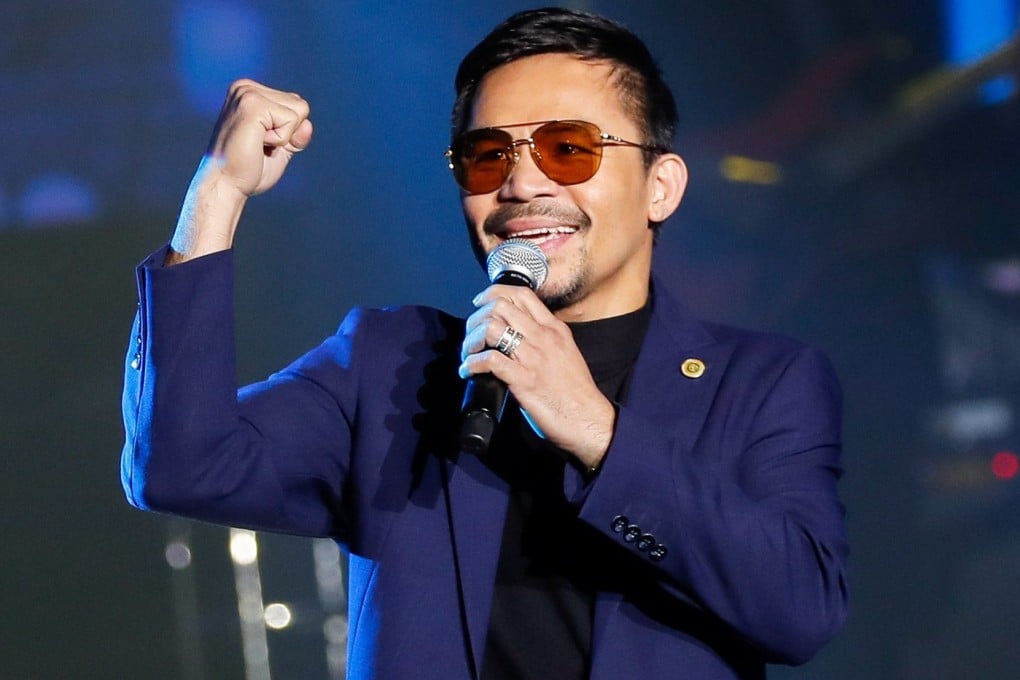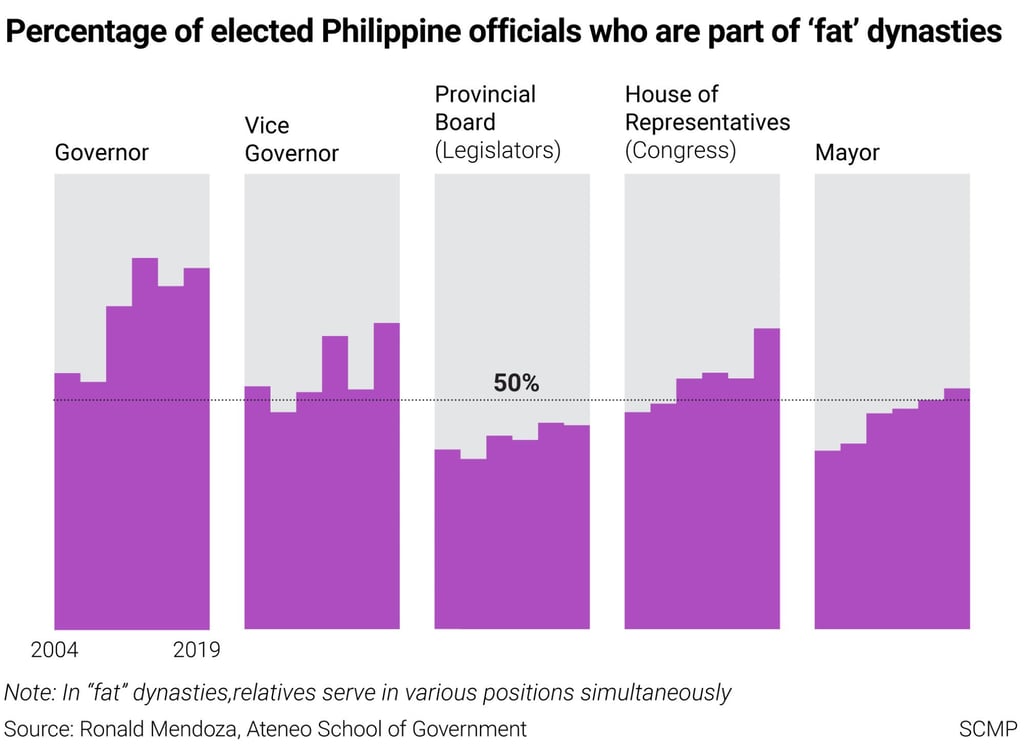Duterte, Marcos, Estrada, Cayetano: Pacquiao can’t beat the Philippines’ political dynasties, but he can join them
- In the Philippines’ free and open elections, it’s easy to vote a political family out of power – vote another one in. Welcome to the ‘world capital’ of political dynasties
- The Duterte and Pacquiao clans are just the latest big-hitters in a tradition that goes back generations and bestows great benefits. As one observer puts it, ‘if politicians were listed on the stock exchange, they’d put most blue chips to shame’

When Manila mayor Isko Moreno announced on September 22 that he was running for president next year, he went out of his way to stress one thing: he did not belong to a political family.
Moreno, 46, a former actor whose real name is Francisco Domagoso, said: “I don’t belong to a large clan. I am neither son nor daughter of a president. You won’t find the faces of my impoverished ancestors on peso bills. No avenues are named after them, not even a side street or a waiting shed.”
He was telling voters they need not worry that he would contribute to the country’s biggest political curse: self-serving clans that monopolise elective positions and treat them as if they are heirlooms.
Members of these clans occupy positions at every level, from national down to the village level. No matter who wins or loses an election, the winner is usually from one dynasty or another.
Ronald Mendoza, dean of the Ateneo School of Government, said that as of 2019, 80 per cent of governors, 67 per cent of vice-governors, 66 per cent of congressmen and 53 per cent of mayors belonged to political dynasties.
Mendoza defined a political dynasty as a family that had at least two members in public office, and distinguished between a “thin” dynasty – in which members serve in succession – and a “fat” one, in which relatives occupy various positions simultaneously.
